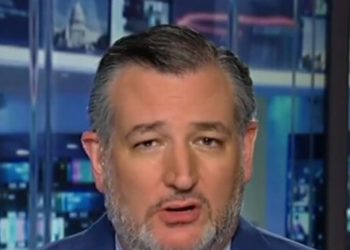The European Central Bank cut interest rates on Thursday to the lowest level in two and a half years, as uncertainty caused by President Trump’s trade war is expected to slow Europe’s economic recovery and reduce inflation.
The central bank’s policymakers, who set rates for the 20 countries that use the euro, lowered the key rate to 2 percent. It was the eight cut in the past year as officials have sharpened their focus on the region’s weak economy and grown confident that inflation is under control.
The average rate of inflation in the eurozone slowed to 1.9 percent in May, just below the central bank’s 2 percent target, data published this week showed.
Christine Lagarde, the president of the bank, has emphasized that officials are trying to steer the economy at a time of “exceptional” uncertainty. Mr. Trump’s erratic trade policy has caused disarray in the global economy as new tariff threats jolt investors, businesses and political leaders. Last month, he said he would raise tariffs on goods from the European Union to 50 percent, then paused the decision until early July to allow for negotiations to continue.
The central bank said that uncertainty around trade policy was expected to weigh on the economy, dampening business investment and exports. But it expected an increase in government spending in the region, particularly on defense, to help support the economy in the medium term.
The bank lowered its inflation forecasts because of lower energy prices and a stronger euro, which makes imports cheaper. The euro has gained more than 10 percent against the dollar this year, bolstered by investors who have been spooked by Mr. Trump’s policies and turned to the euro as a safe alternative.
The bank forecasts inflation will average 2 percent this year, and then fall to 1.6 percent next year, notably below its target.
Analysts and traders do not expect the European Central Bank to lower rates much further this year. At 2 percent, rates are seen as roughly neutral, neither restricting the economy to bring down inflation nor actively stimulating it. Traders are betting on just one more rate cut in September.
But that depends on whether trade tensions escalate. If higher tariffs are reinstated and the European Union retaliates, that could weaken the economy further and encourage more rate cuts. But some policymakers, including Isabel Schnabel, an executive board member, have said there are still risks of rising inflation as global supply chains absorb the cost of higher U.S. tariffs, which would warrant the central bank to hold rates.
“Especially in current conditions of exceptional uncertainty,” the bank said in a statement, future decisions will be made depending on data at the time of each meeting. “The governing council is not pre-committing to a particular rate path.”
Eshe Nelson is a Times reporter based in London, covering economics and business news.
The post European Central Bank Cuts Rates as Trade War Weighs on the Economy appeared first on New York Times.




